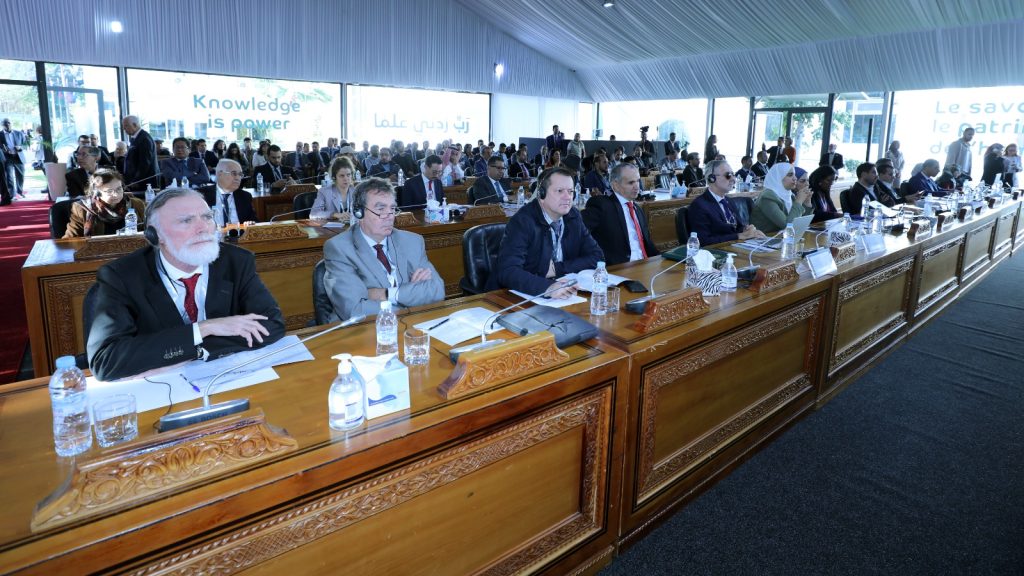
International Conference on Combating Violent Extremism kick off at ICESCO headquarters

14 November 2023
The third session of the International Conference on Combating Violent Extremism kicked off, on Tuesday (November 14, 2023), at ICESCO’s headquarters, in Rabat. This event, being held by the Islamic World Educational, Scientific and Cultural Organization (ICESCO), in partnership with the Moroccan Observatory on Extremism and Violence, and in cooperation with the Moroccan General Delegation for Prison Administration and Reintegration, the Mohammadia League of Scholars and the Policy Center for the New South, brings together high-level officials and representatives of international and regional organizations, in addition to an elite group of experts and researchers in the field of countering extremism.
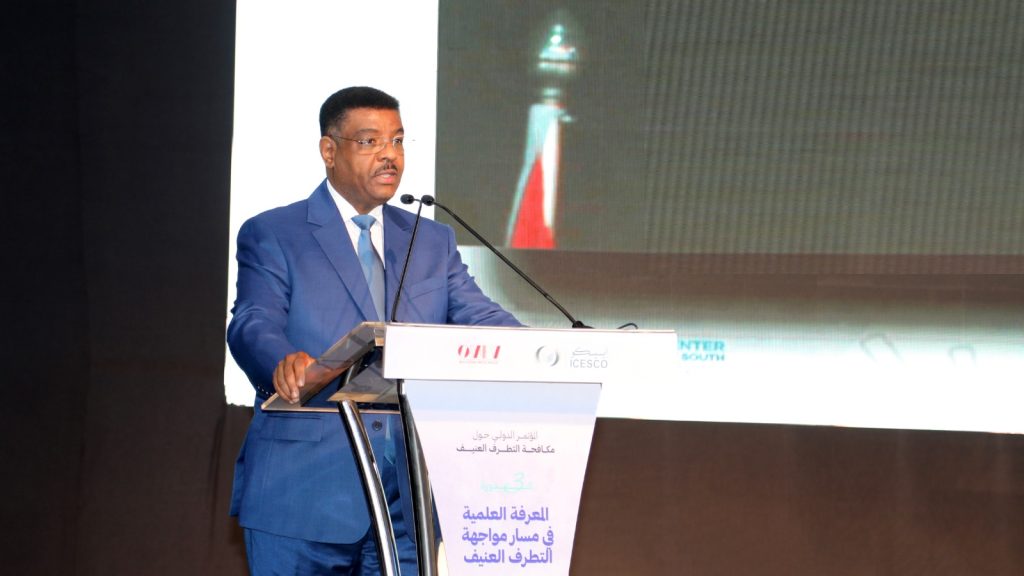
The two-day conference, being held under the theme “Scientific Knowledge in Countering Violent Extremism,” began with the recitation of verses from the Holy Quran, followed by an introduction delivered by Ambassador Khaled Fatahalrahman, Director of ICESCO Center for Civilizational Dialogue.
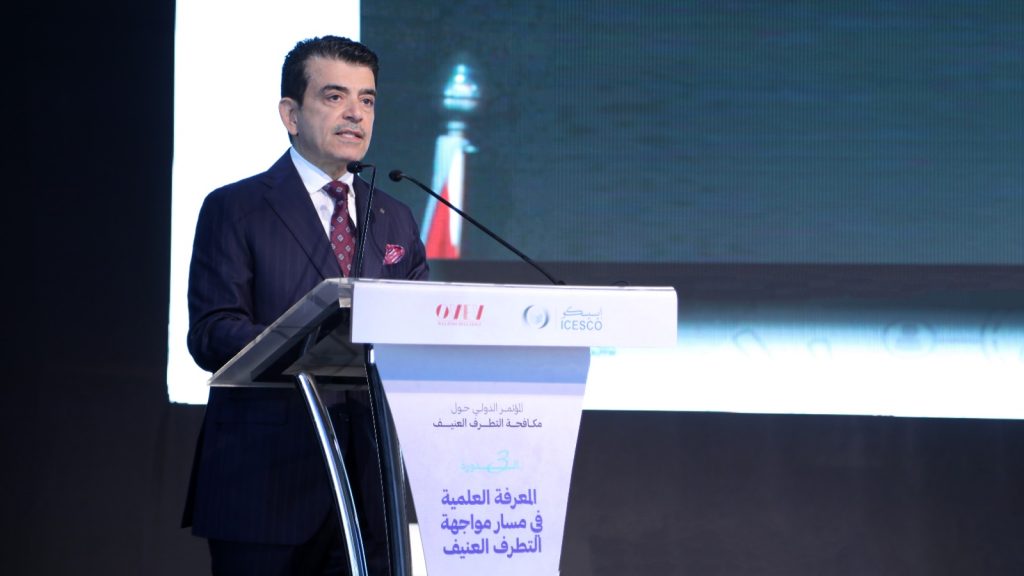
During the opening session, Dr. Salim M. AlMalik, Director-General of ICESCO, gave an address, wherein he stressed that violent extremism did not appear out of thin air, but rather has many roots, adding that confronting this phenomenon begins by eradicating these roots, and indicating that extremism is not exclusive to a specific faith, region or nationality.
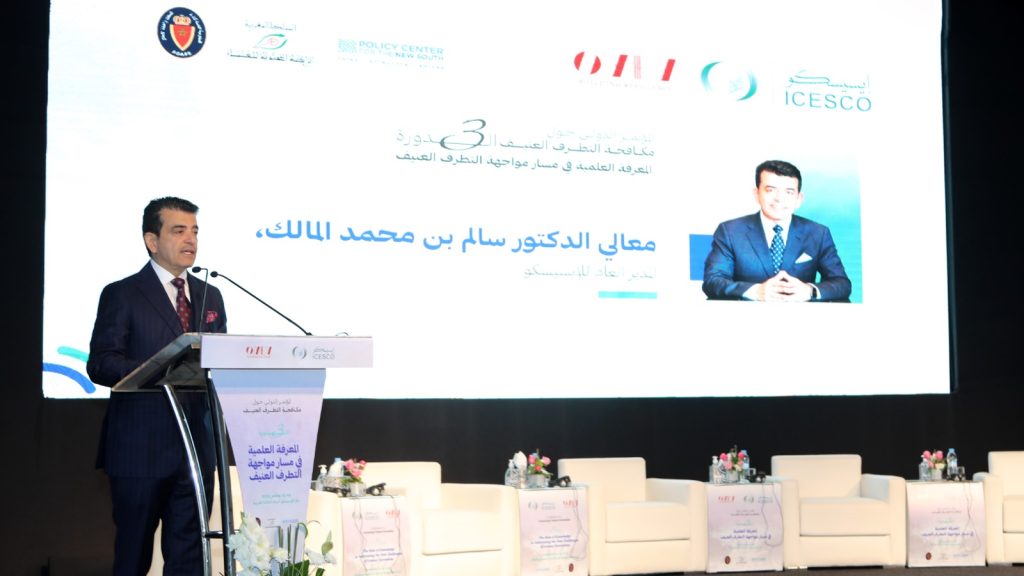
Moreover, the Director-General of ICESCO warned of the growing use of communication technology by violent extremist groups, especially artificial intelligence applications, explaining that children are affected by the consequences of the violent behavior nurtured through video games, which facilitate their recruitment by extremists in the future. He concluded his address by condemning the Israeli aggression on the Palestinian territories, which disrespect all international laws and norms.
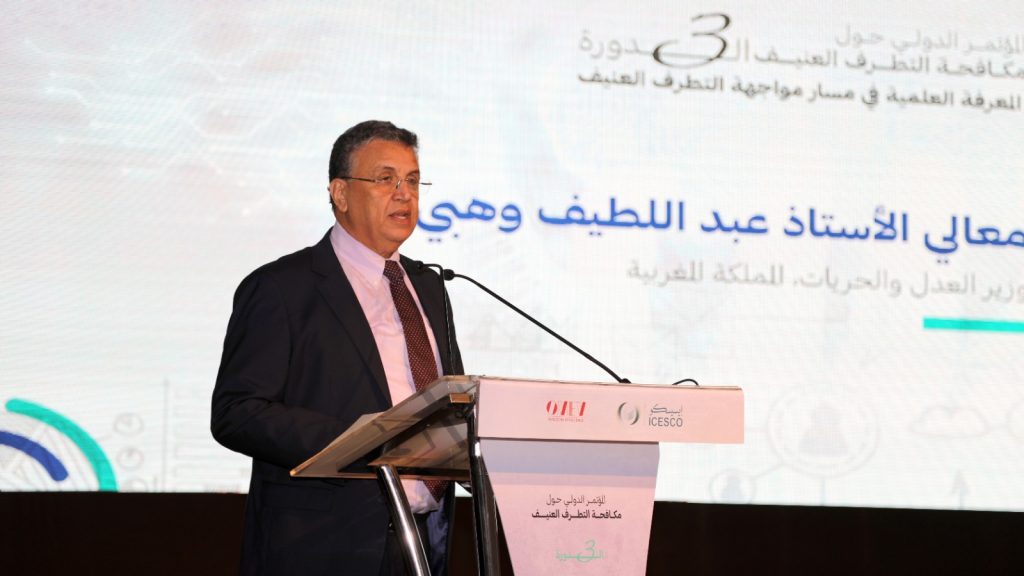
In his address, Mr. Abdellatif Ouahbi, Minister of Justice of the Kingdom of Morocco, stressed that scientific knowledge is capable of immunizing people against extremist ideas, indicating the Kingdom’s keenness to adopt a national approach to combat terrorism and confront the causes of extremist ideologies.
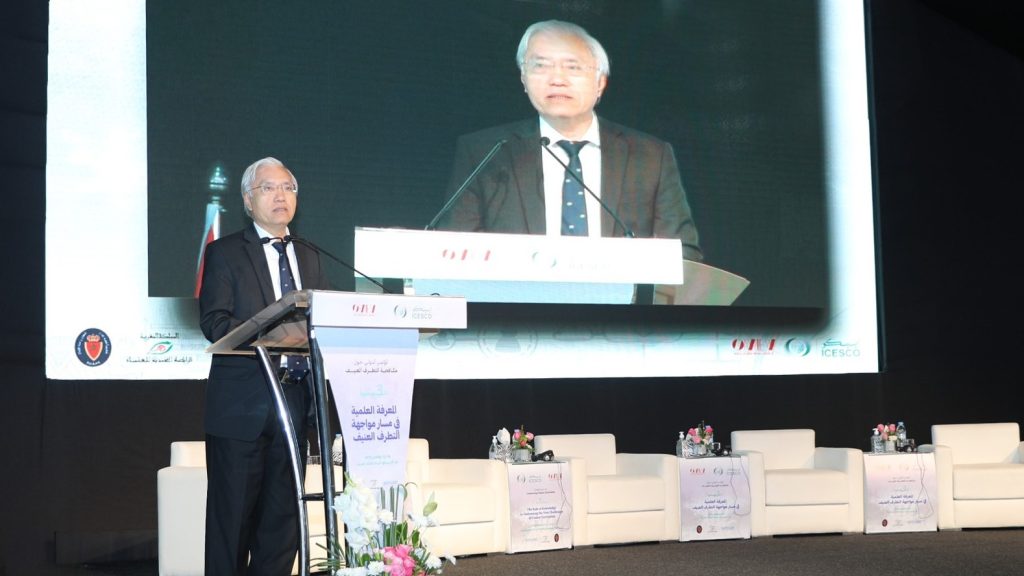
Mr. Weixiong Chen, Deputy Executive Director of the United Nations Counter-Terrorism Executive Committee at the Security Council, explained that terrorist and violent extremist groups seek to exploit environmental crises, poverty, weak governance and human rights violations to recruit more members.
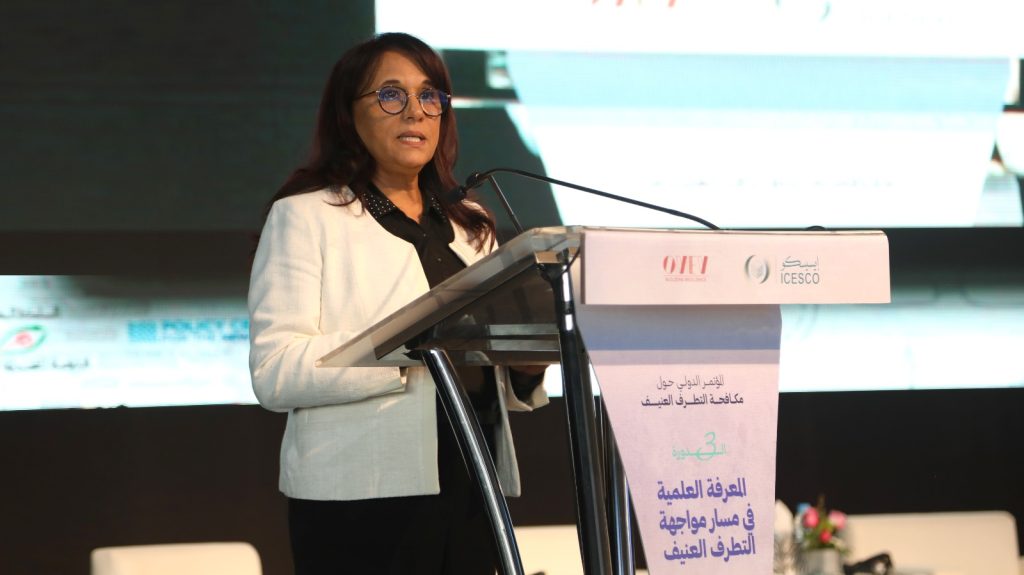
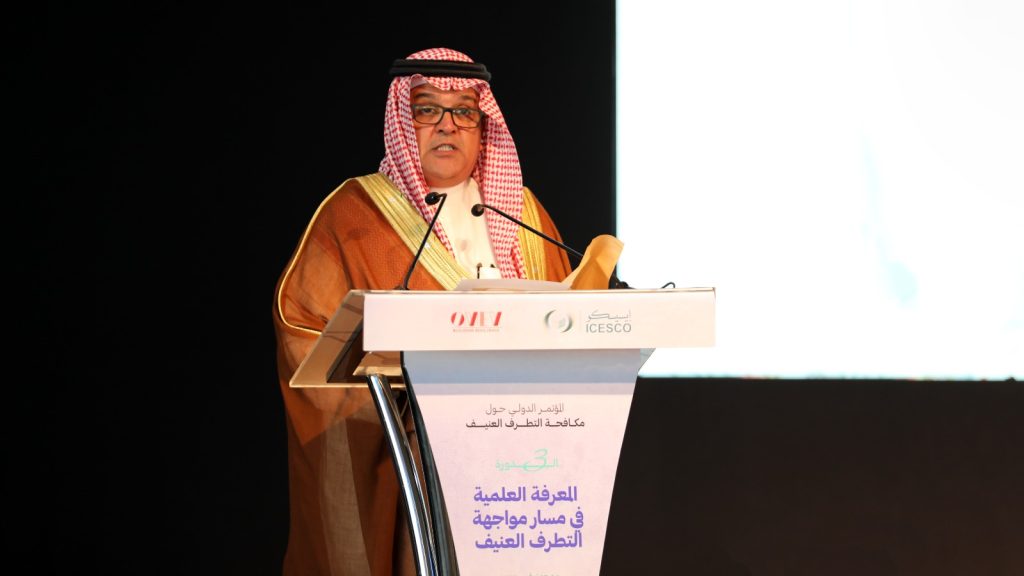
For her part, Ms. Amina Bouayach, President of the National Council for Human Rights in Morocco, reaffirmed that the phenomenon of violent extremism represents a real threat to the democratic value systems and human rights. Dr. Khalid bin Abdulaziz Al-Harfash, Vice-President of Naif University for Security Sciences for Foreign Relations in the Kingdom of Saudi Arabia, praised the conference, which is consistent with the university’s efforts in the field of combating extremist ideology.
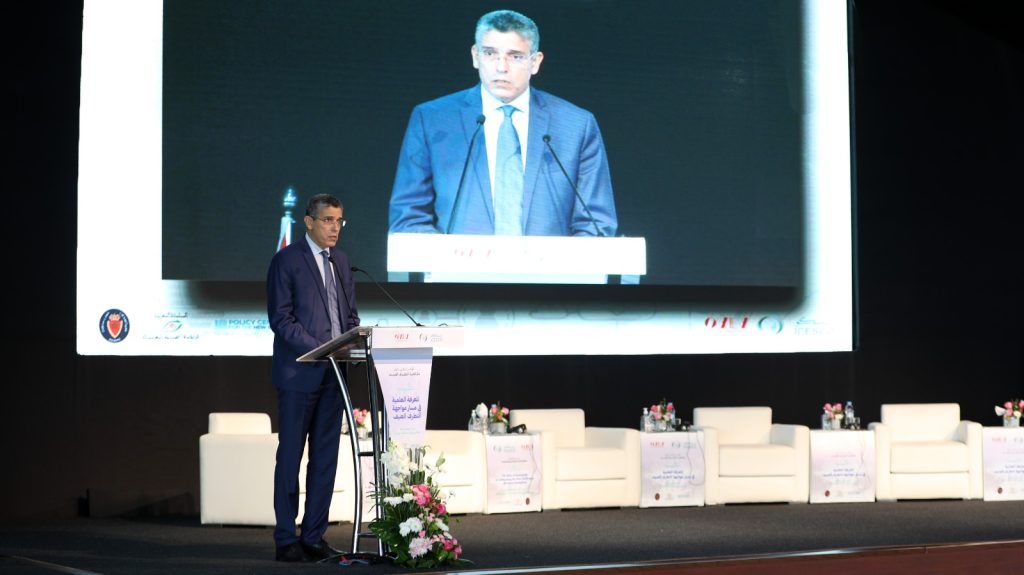
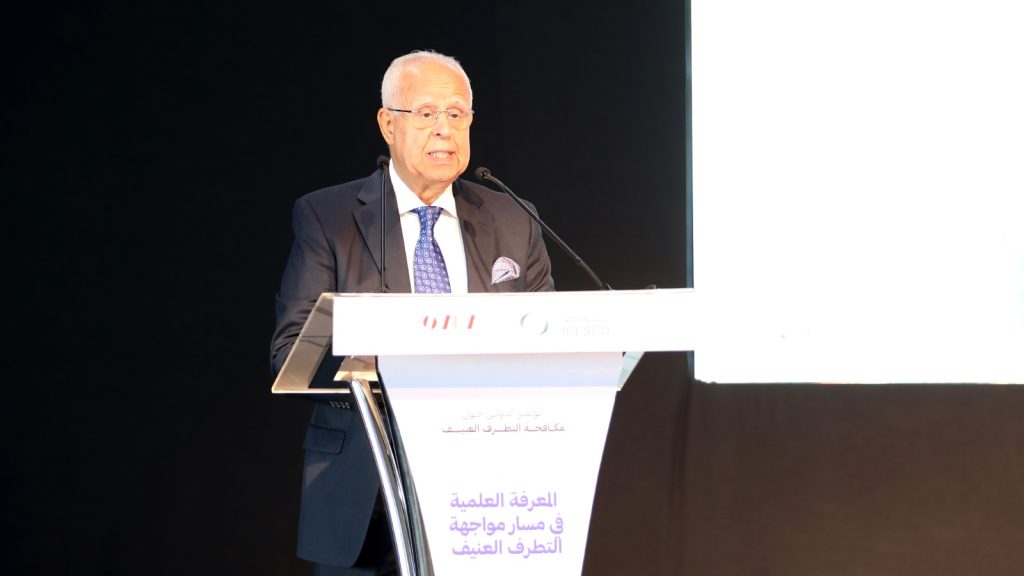
In his address, Mr. Hakim Bendaoud, representative of Morocco General Directorate of National Security, stressed that the security approach to confront terrorism cannot succeed alone, stressing that a comprehensive approach is needed to address and prevent all aspects and causes of extremism. Ambassador Mohamed Lolishki, senior researcher at the Policy Center for the New South, indicated that the spread of terrorism imposed the need to address this phenomenon in a comprehensive manner based on national strategies and international cooperation.
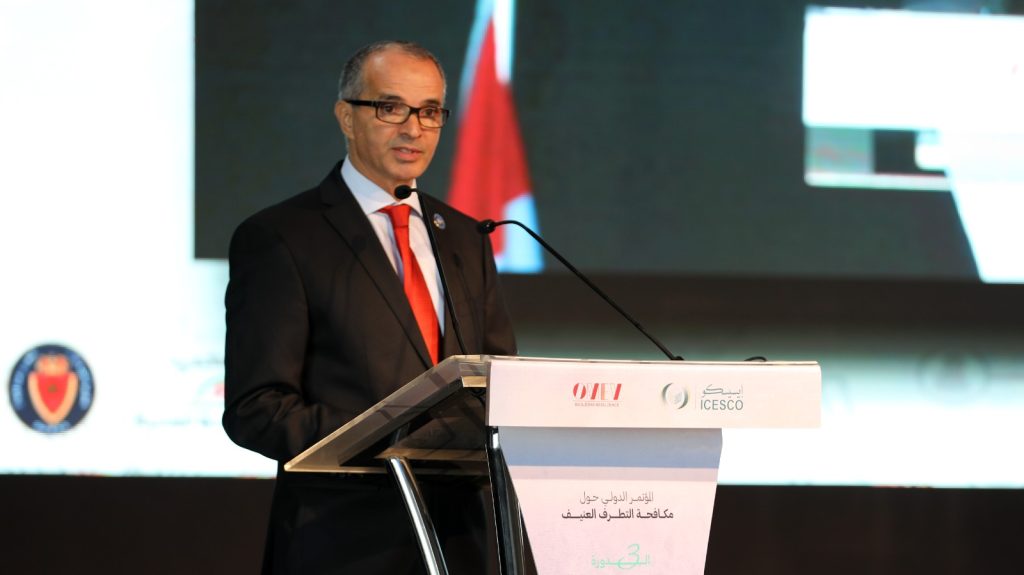
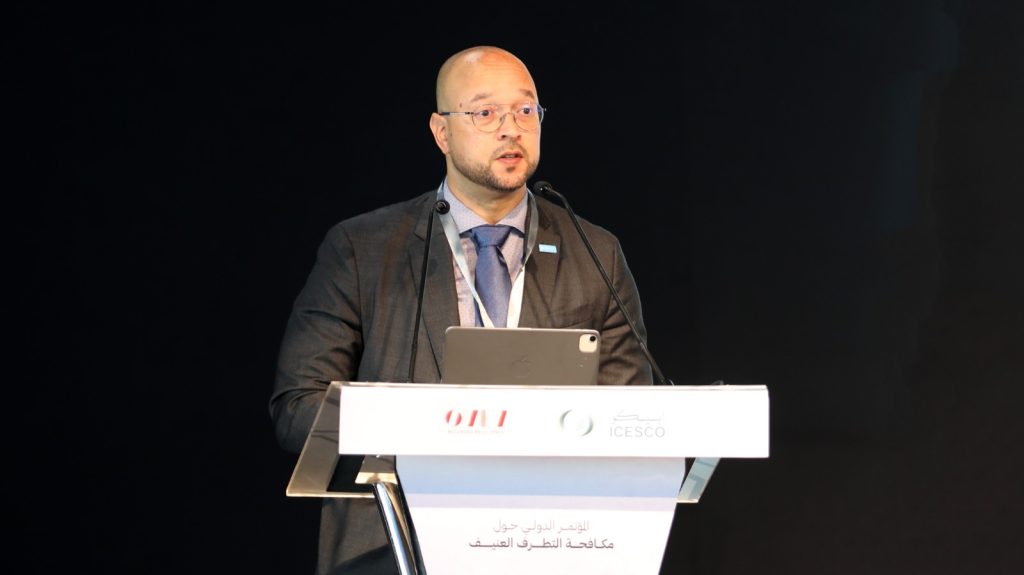
In his statement, Mr. Abdelouahed Jamali Idrissi, coordinator of the Mohammed VI Foundation for the Reintegration of Prisoners in Morocco, tackled the difficulties and challenges facing former prisoners in their reintegration into society. Mr. Carlos Alexandre Montrio Reyes, Head of the Office of the United Nations Counter-Terrorism and Training Program in Africa, stressed the importance of education as a tool for combating extremism.
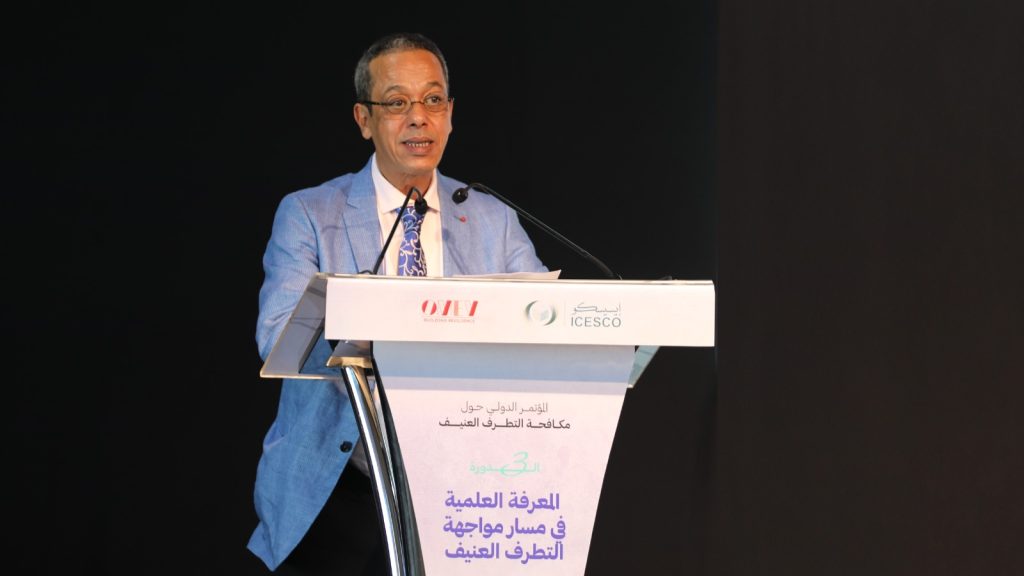
In his address, Dr. Mustafa Al-Razrazi, head of the Moroccan Observatory on Extremism and Violence, highlighted the topics that the conference will discuss throughout its sessions with the aim of exchanging national and international expertise and experiences on confronting violent extremism.
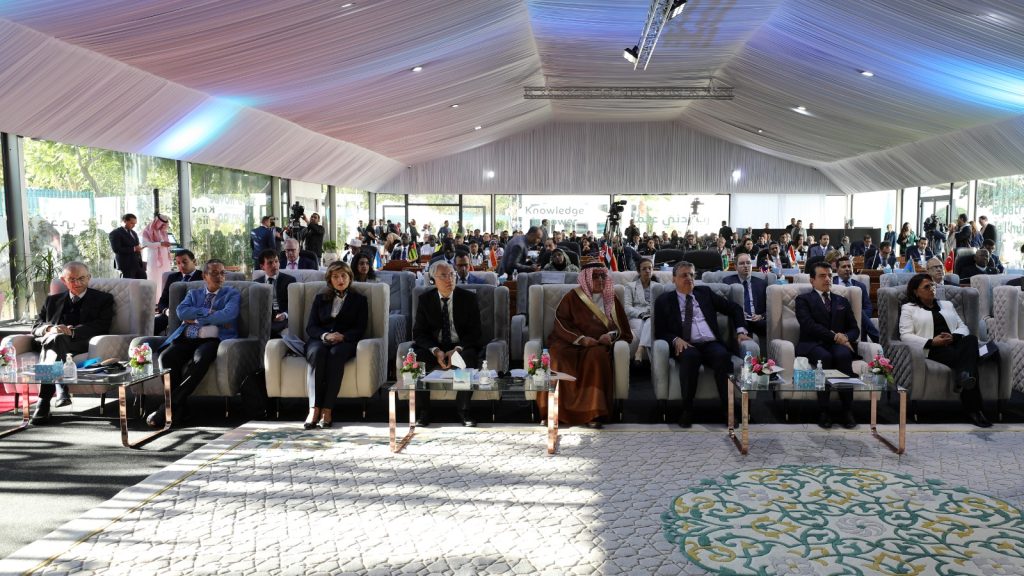
After that, the first session of the conference began on the behavioral and psychological aspects related to recruitment and rejecting extremism. The second session discussed the role of knowledge in confronting extremism. The second day of the conference includes exchanging national and international experiences and expertise on extremism rejection programs and the danger of using technology and artificial intelligence in extremism, as well as experiences and good practices sharing on the return of foreign fighters and their families.
